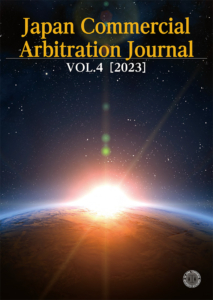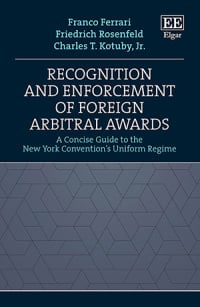Views
The International Business Courts saga continued: NCC First Judgment – BIBC Proposal unplugged
Written by Georgia Antonopoulou and Xandra Kramer, Erasmus University Rotterdam (PhD candidate and PI ERC consolidator project Building EU Civil Justice)
1. Mushrooming International Business Courts on the Eve of Brexit
Readers of this blog will have followed the developments on the international business courts and international commercial chambers being established around Europe and elsewhere. While many of the initiatives to set up such a court or special chamber date from before the Brexit vote, it is clear that the UK leaving the EU has boosted these and is considered to be a big game changer. It remains to be seen whether it really is, but in any case the creation of courts and procedures designed to deal with international commercial disputes efficiently is very interesting! Read more
Brexit: Three modest proposals
After last Thursday’s EU summit, which resulted in a double-barreled “flextension” of the date for Brexit, all cards are on the table again. Insofar, it is worth noticing that the German journalist Harald Martenstein, in his weekly column for the Berlin-based “Tagesspiegel”, has recently offered three innovative solutions for the Brexit dilemma:
The first one may be called the “one island, two countries” proposal: Great Britain would be split into two parts, one leaving the EU, the other remaining. All Britons would then be granted double citizenship and be free to make up their minds according to their preferences.
The second solution that the columnist proposes takes up the frequently raised demand for a second referendum that should overturn the first Brexit vote. Well, if there is going to be a second referendum, why not a third or even a fourth one? Thus, Martenstein suggests that, in the future, a referendum should be held every year on 2 January; for the remaining part of the year, the United Kingdom would then be either in or out of the EU.
Thirdly and finally, if all else fails, Martenstein argues that the UK might simply turn the tables and offer the other Member States the possibility of leaving the EU as well and joining the UK instead, which would then change its name to “Greatest Britain Ever”.
Obviously, the proposals made by the columnist are meant as a satirical comment. Yet, there are some elements of reality contained in his mockery: who knows whether, in case of a hard Brexit, Scotland (or Northern Ireland) would stay a part of the UK or whether a new referendum on seceding from the UK – and re-joining the EU – would be organized? And already today, numerous Britons are applying for a double citizenship in order to keep a foothold in the EU. Who knows whether a second referendum on Brexit will take place and whether it will actually settle the matter once and for all? And wasn’t the EU summit an attempt by the EU-27 to avoid the Brexit populist contagion from spreading to the continent via the impending EU parliamentary elections? In sum, the situation is increasingly reminiscent of a book title by Paul Watzlawick: hopeless, but not serious…
Interpreting Choice-of-Law Clauses
Written by John Coyle, the Reef C. Ivey II Term Professor of Law, Associate Professor of Law at the University of North Carolina School of Law
Over the past few decades, the concept of party autonomy has moved to the forefront of private international law scholarship. The question of whether (and to what extent) private actors may choose the law that will govern their relationship has generated extensive commentary and discussion. The result? An ever-expanding literature on the role of party autonomy in private international law.
News
New Volume of the Japan Commercial Arbitration Journal
The Japan Commercial Arbitration Association (JCAA), one of the oldest international arbitration institutions in the world, founded in 1950, has started to publish its annual journal on commercial arbitration – “Japan Commercial Arbitration Journal” – entirely in English. The Journal’s Volume 4, which has been published recently, features the following articles:

Miriam Rose Ivan L. Pereira
Combining Interactive Arbitration with Mediation: A Hybrid Solution under the Interactive Arbitration Rules
Masaru Suzuki, Shinya Sakuragi
The Use of Technology in the International Commercial Arbitration and the Consideration of Rulemaking
Kazuhisa Fujita
Current Status of International Arbitration from the Perspective of Corporate Law and Japan as the Place of Arbitration
Dai Yokomizo
International Commercial Arbitration and Public Interests: Focusing on the Treatment of Overriding Mandatory Rules
Yuji Yasunaga
Extending the Application of an Arbitration Agreement Involving a Corporation to Include its Representative
Kazuhiro Kobayashi
Scope, Amount and Sharing of Arbitration Expenses and Court Costs in Japan
Leon Ryan, Shunsuke Domon
Disputes in India ? Lessons from Mittal v Westbridge
Junya Naito, Motomu Wake
Potential for a New Arb-Med in Japan
Yoshihiro (Yoshi) Takatori
Arbitrator Training and Assessment ? How to Increase and Strengthen Resource of Arbitrators and ADR Practitioners
Shuji Yanase
On Dual Conciliation by Two Conciliators
Takeshi Ueda
Discussions and Challenges in Promoting Online Dispute Resolution
Shinji Kusakabe
Civil Litigation after the Introduction of IT, as Suggested by Scheduled Proceedings in Commercial Arbitration
All volumes can also be freely consulted and downloaded here.
Transatlantic Dialogue in Private International Law: family and personal status, 12-13 October, Coimbra
The Institute of Legal Research of the University of Coimbra is organising an event in their series of Transatlantic Dialogues in Private International law. On 12 and 13 October the topic is Family and Personal Status on the Move.
The programme includes the main developments in family law and personal status, name, multiple parenthood, gender and polyamorous relationships. Besides, there is a session for young researchers, for whom the organisers opened a call for papers. A 300-word abstract should be submitted by mail to dulcel@fd.uc.pt and paulavit@fd.uc.pt. by 20 September.
See the Call for papers booklet
The organisers are Dulce Lopez, Guillermo Palao Moreno, Nicolas Nord and Paula Távora Vítor.
The event is hybrid, but registration is required.
Review of: Recognition and Enforcement of Foreign Arbitral Awards (Ferrari, Rosenfeld, & Kotuby Jr.)
Franco Ferrari, Friedrich Rosenfeld, & Charles T. Kotuby Jr., Recognition and Enforcement of Foreign Arbitral Awards: A Concise Guide to the New York Convention’s Uniform Regime
Cheltenham, Edward Elgar, 2023
178 pp. Hardback : £72 eBook: £20



